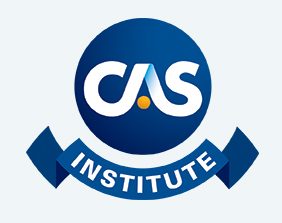 On March 15, 2021, the CAS Institute met for its annual Predictive Analytics Community of Practice, bringing together predictive analytics professionals for a series of presentations and roundtable discussions on current topics. This year the all-day virtual event was open to everyone including those without the CSPA credential. The morning session centered on the current hot topic of fairness and social justice in insurance. Participants learned about the impact that the social justice movement has had on insurance rating and discussed a framework to assess fairness in insurance based on the field of ethics. A roundtable discussion was also held on how predictive analytics professionals could contribute to assessing bias in insurance rating.
On March 15, 2021, the CAS Institute met for its annual Predictive Analytics Community of Practice, bringing together predictive analytics professionals for a series of presentations and roundtable discussions on current topics. This year the all-day virtual event was open to everyone including those without the CSPA credential. The morning session centered on the current hot topic of fairness and social justice in insurance. Participants learned about the impact that the social justice movement has had on insurance rating and discussed a framework to assess fairness in insurance based on the field of ethics. A roundtable discussion was also held on how predictive analytics professionals could contribute to assessing bias in insurance rating.
Given their understanding of the underlying data and computational algorithms, analytical professionals need to be major contributors in assessing and ensuring equity in insurance.
One important takeaway was that, given their understanding of the underlying data and computational algorithms, analytical professionals need to be major contributors in assessing and ensuring equity in insurance. During his presentation, Roosevelt Mosley, FCAS, CSPA, suggested several methods that analytical professions could use to increase equity in insurance pricing. These could include excluding specific characteristics from rating plans, controlling for protected characteristics in pricing or adjusting final outcomes for protected classes.
The afternoon session focused on predictive analytics techniques. The topics included a new and flexible regression model for ratemaking and reserving; how artificial intelligence (AI) can be utilized in actuarial functions; and how data scientists, actuaries and business partners can better work together to solve business problems.
Professor Andrei Badescu from the University of Toronto introduced a flexible framework for modeling actuarial problems that utilizes a Logit-weighted reduced mixture of experts model. This framework can be “fully flexible” to capture any distribution, dependence, or regression pattern including nonlinear regression and covariate interactions. Badescu and his colleagues developed a publicly available R package (LRMoE.R) and Julia package (LRMoE.jl) that allow anyone to apply the framework. In addition, he mentioned that he and his colleagues are seeking partnerships with insurance companies to further develop their research on this topic.
Ronald Richman, FIA, FASSA, CERA, managing head of insurance actuarial at SA Taxi in Johannesburg, presented on the application of AI in actuarial functions. He showed that deep learning can open new possibilities for actuarial modeling by solving difficult model specification problems, especially those involving large-scale modeling problems. Richman also challenged the assumption that artificial intelligence algorithms are black boxes by showing that learned representations from deep neural networks often have readily interpretable meanings.
To purchase recordings of the 2021 iCAS Community of Practice event, please visit the iCAS website. Meanwhile, planning has begun for the traditional in-person iCAS Community of Practice Event to be held immediately prior to RPM in March 2022.
The CAS Institute hopes to see you at the Community of Practice event next year!
Mike Woods, FCAS, CSPA, MAAA, is an actuary and senior manager for Allstate Insurance Company.













